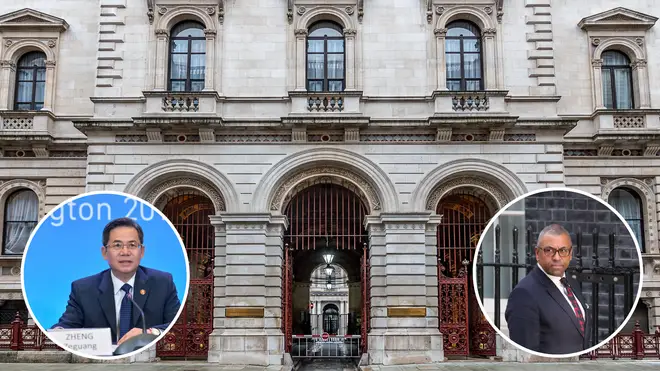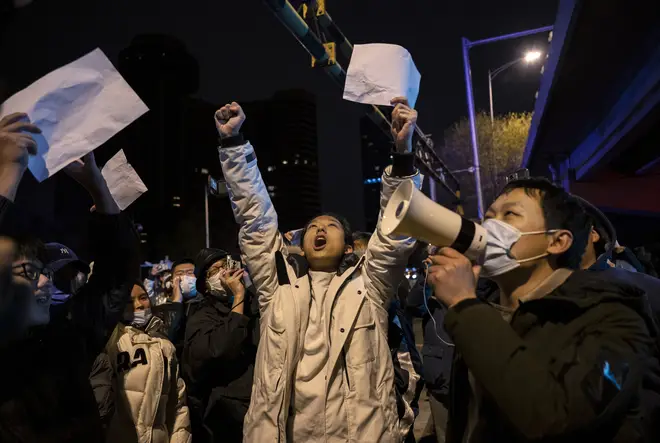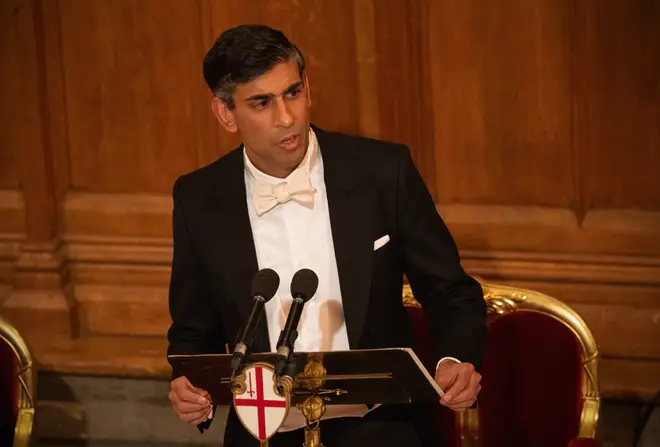
Paul Brand 10am - 12pm
29 November 2022, 11:49 | Updated: 29 November 2022, 11:53

China's ambassador to the UK has been summoned to the Foreign Office following the attack and arrest of a British journalist covering anti-Covid protests in Shanghai.
Fury was sparked in Britain after Edward Lawrence, a camera operator for the BBC’s China Bureau, was hit and kicked by officers in Shanghai.
He was covering a protest from citizens taking to the streets to oppose the country’s draconian zero-Covid policy.
The BBC said Mr Lawrence was ‘arrested and handcuffed’ on Sunday night.
Senior journalist and cameraman Ed Lawrence was filmed being led away and telling his colleague: "Call the consulate now."
British officials have reportedly spoken with Mr Lawrence, who has now been released, and now Zheng Zeguang has been summoned by Foreign Secretary James Cleverly.

A source from the Foreign, Commonwealth and Development Office said today: "The Chinese ambassador has been called to the FCDO.
"The BBC has been clear one of their journalists was detained and beaten by police when covering these protests.
"We have made it clear this behaviour by the Chinese authorities is completely unacceptable.
"China’s foreign ministry has reportedly contested the BBC’s claims, saying Mr Lawrence did not identify himself as a journalist."
Read More: Elon Musk slams Apple as tech giant 'pulls Twitter ads'
A BBC spokesperson told LBC on Sunday night: “The BBC is extremely concerned about the treatment of our journalist Ed Lawrence, who was arrested and handcuffed while covering the protests in Shanghai. He was held for several hours before being released.
"During his arrest, he was beaten and kicked by the police. This happened while he was working as an accredited journalist.
“It is very worrying that one of our journalists was attacked in this way whilst carrying out his duties.
"We have had no official explanation or apology from the Chinese authorities, beyond a claim by the officials who later released him that they had arrested him for his own good in case he caught Covid from the crowd. We do not consider this a credible explanation.”

British Prime Minister Rishi Sunak warned last night that the "golden era" of relations between London and Beijing are over amid the protests.
Most protests have been peaceful so far, with some demonstrators calling for more free speech in the authoritarian country - and even the removal of president Xi Jinping.But some onlookers worry that the protests could soon turn violent.
Former US national security adviser John Bolton told LBC on Monday that he expected the Chinese authorities to crack down harder soon.
"You can see how prepared the Chinese government is to use repressive force by looking at what they did to Hong Kong, violating a sacred international agreement," he said.
"That’s the sort of behaviour that I think we could see if these protests continue."
Mr Sunak amped up his rhetoric on China on Monday night, saying "the naïve idea" that trade with the country would lead to social and political reform is gone.
In a speech at the Lord Mayor’s Banquet tonight, the PM seemed to signal a more aggressive approach on relations with the country, saying China is "consciously competing for global influence using all the levers of state power".
He said that faced with these challenges "short-termism or wishful thinking will not suffice. We can’t depend on Cold War arguments or approaches, or mere sentimentality about the past.